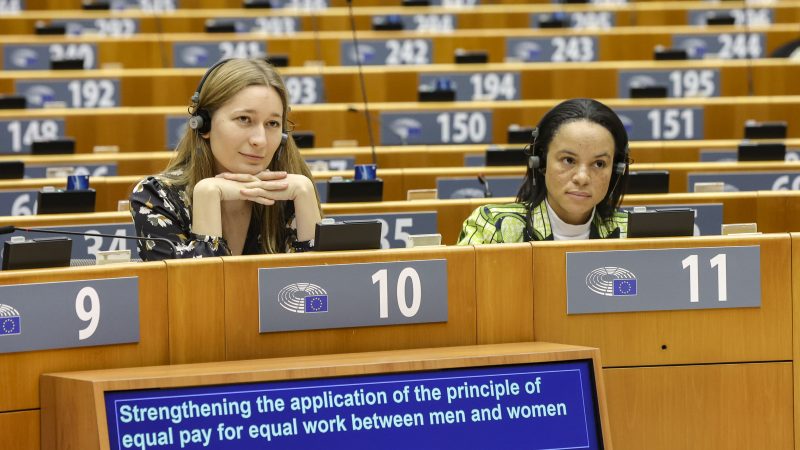In March 2023, the European Parliament passed the resolution on Minimum Income ensuring active inclusion and approved the Pay Transparency directive. COFACE Families Europe welcomes both initiatives as they both promote non-discrimination and address the gender pay gap.
Resolution on adequate minimum income ensuring active inclusion
On the 15th of March, the European Parliament plenary adopted a resolution noting that an EU directive on an adequate minimum income would make minimum income schemes more accessible and effective. It would also ensure that people currently absent from the labour market are integrated into it. EU countries should regularly evaluate their national schemes and update them if needed, ensuring an adequate level of support that reflects the national at-risk-of-poverty (AROPE) threshold, to establish a social safety net guaranteeing a minimum standard of living. MEPs also want to raise awareness of these schemes and make them more accessible, in particular for disadvantaged groups such as homeless people. They propose measures to address widespread issues in EU countries such as the lack of take-up of these schemes and the digital divide. The text was adopted with 336 votes in favour, 174 against and 121 abstentions.
In addition, the resolution refers to the European Care Strategy and insists that unpaid care work should be valued, carers’ skills should be recognised and the equal distribution of care responsibilities should be encouraged. It states that informal care can lead to a loss of income, an aggravation of the gender pay and pension gaps, old-age poverty and the feminisation of poverty.
Pay transparency directive
On the 30th of March, a large majority in the European Parliament voted in favour of adopting the EU’s pay transparency directive aiming to narrow the EU gender pay gap. During the plenary, 427 members of Parliament voted in favour of the directive, with 79 votes against and 76 abstentions. The directive, proposed by the Commission in March 2021, will now need to formally be adopted by member states and transposed into national law within three years after entering into force.
The directive seeks to make salaries more transparent by obliging companies with more than 100 employees to report and fix their wage disparities, in a bid to narrow the EU gender pay gap, which currently stands at 12.7%. Employers will need to take corrective measures if the pay gap exceeds 5% without justifications, while employees will have the right to access sex-disaggregated data on salary and know the criteria used to define salary and pay rises, which will need to be gender-neutral.
The directive will also ensure job seekers have access to information on the pay range of positions they apply for, while employers will not be able to ask about their previous pay, limiting the possibility of their salary history influencing the pay offered to candidates. Member states will need to set up penalties if the principle of equal pay is not respected, while workers will have the right to compensation if companies do not respect equal pay obligations. Moreover, under the new pay transparency rules, intersectional discrimination will be considered an aggravating factor.
Read more about the resolution on adequate minimum income here.
Read more about the Pay transparency directive here.





